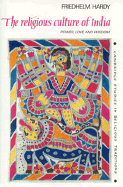Book contents
- Frontmatter
- Contents
- Illustrations
- Preface
- Power: the challenges of the external world
- Love: the rhythms of the interior world
- Wisdom: commuting within one world
- 17 All the valleys filled with corpses
- 18 Strategic initiatives
- 19 Encompassing the galaxies
- 20 The all-pervasive mind
- 21 Striking a balance
- 22 Beyond prosaic words
- 23 Irreducible particulars
- 24 The head in the world
- Notes
- Index
19 - Encompassing the galaxies
from Wisdom: commuting within one world
Published online by Cambridge University Press: 09 February 2010
- Frontmatter
- Contents
- Illustrations
- Preface
- Power: the challenges of the external world
- Love: the rhythms of the interior world
- Wisdom: commuting within one world
- 17 All the valleys filled with corpses
- 18 Strategic initiatives
- 19 Encompassing the galaxies
- 20 The all-pervasive mind
- 21 Striking a balance
- 22 Beyond prosaic words
- 23 Irreducible particulars
- 24 The head in the world
- Notes
- Index
Summary
You can't extricate from Hindu myths some general principles, or ‘laws of nature’, and use them to describe the world as we know it. That was the lesson Haribhadra wanted to teach his Jain readers in his Prakrit Tale of the Rogues. Instead, something rational and reasonable, like the Mahāvīra's teaching, must be used for that purpose. This seems to introduce a straightforward contrast between myth and science, and offers us the cue to turn away from rogues and ruthless politicians to areas of greater profundity.
Let us first look a bit closer at the material which has been criticized here through the mouths of the various rogues. The reductio ad absurdum undertaken by Haribhadra may not do full justice to every aspect of myth. Not that I would want to perpetuate certain romantic views commonly associated with it–myth as the expression of human ‘wholeness’, as a vision of the cosmos still imbued with the sense of the sacred and ‘holy’. This stance has to be discussed separately, and I shall do that presently. But what could a ‘non-romantic’ view of Hindu mythology be, other than what Haribhadra has already offered? Let us look at some examples, to find out.
Yama, the god of death, was standing at the gates of heaven and interrogating three women. ‘What have you done with your life?’ he asked the first one.
- Type
- Chapter
- Information
- The Religious Culture of IndiaPower, Love and Wisdom, pp. 410 - 432Publisher: Cambridge University PressPrint publication year: 1994



